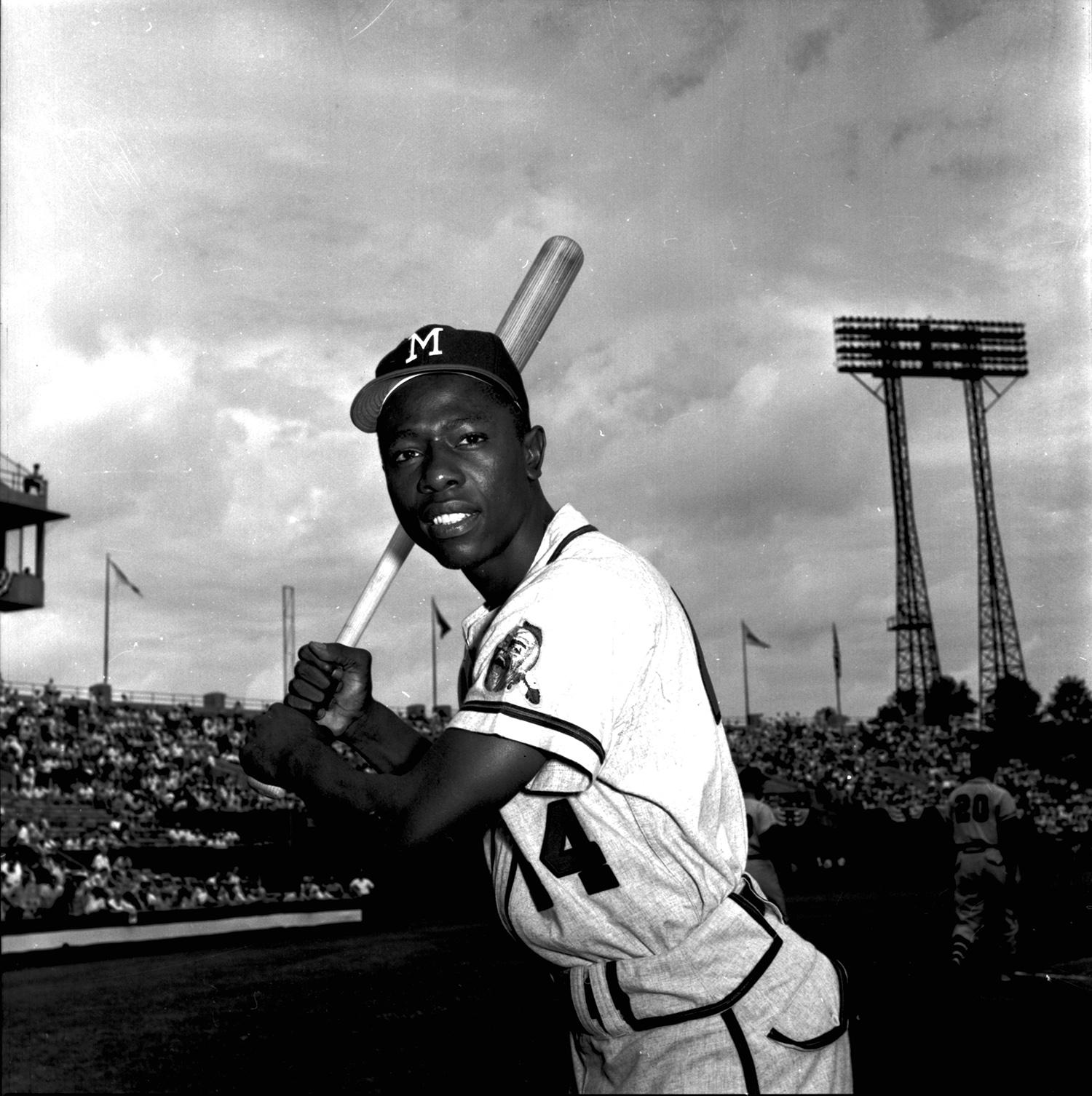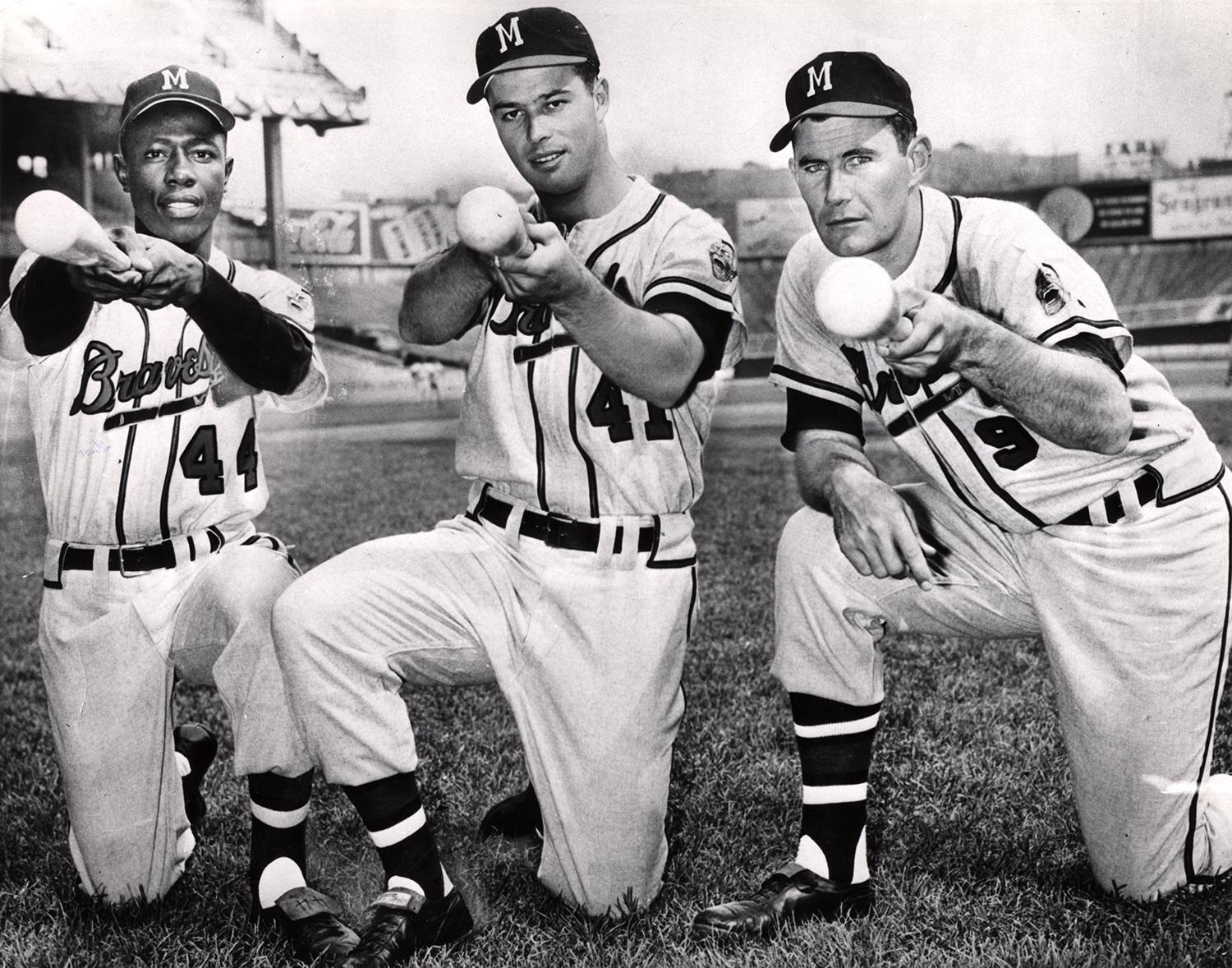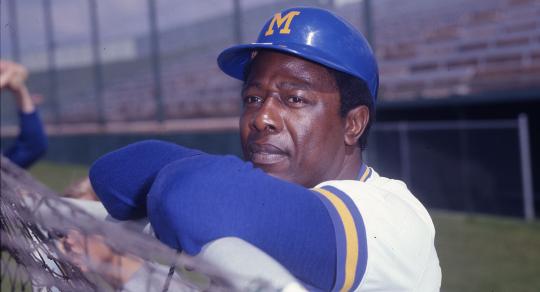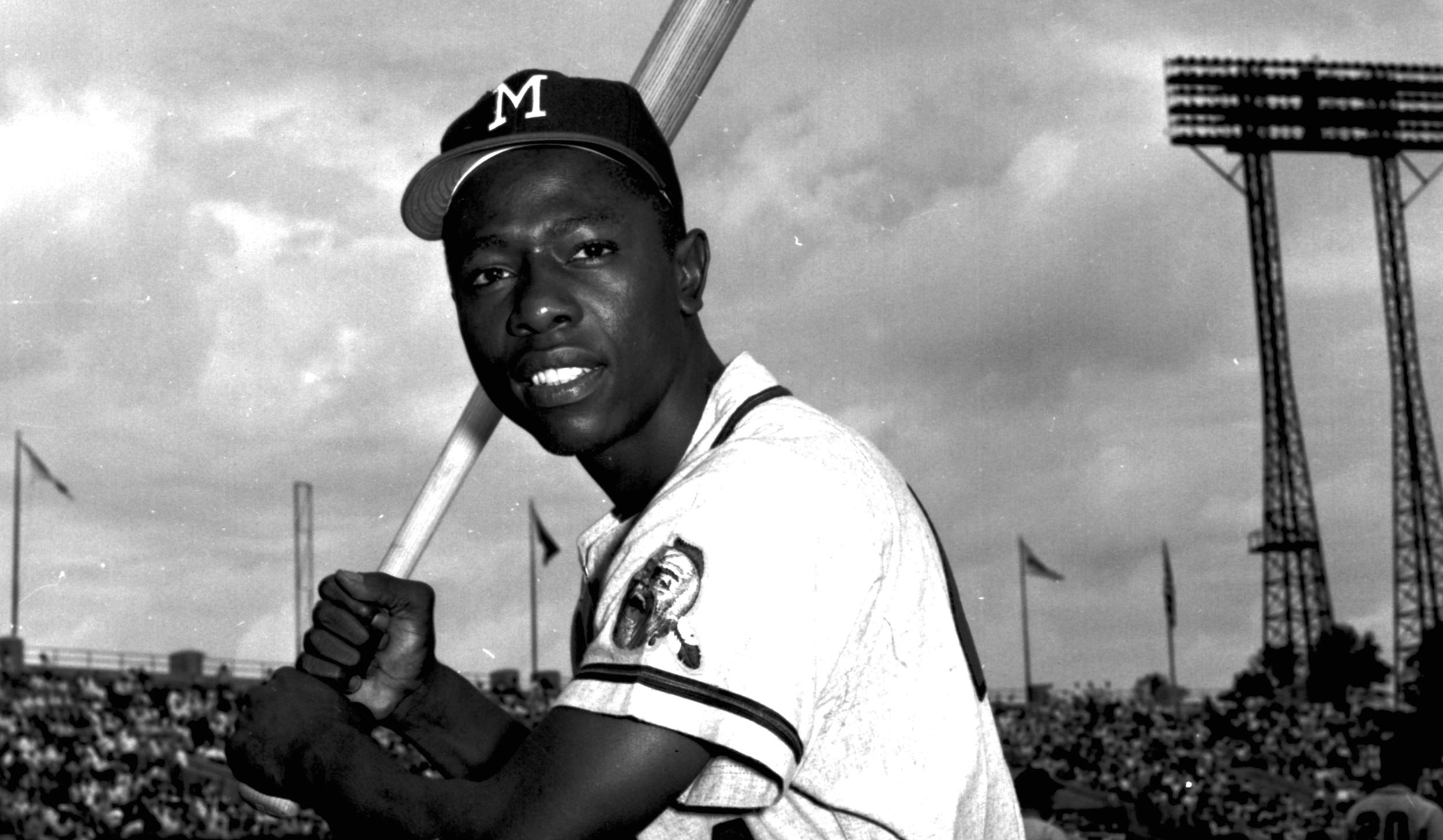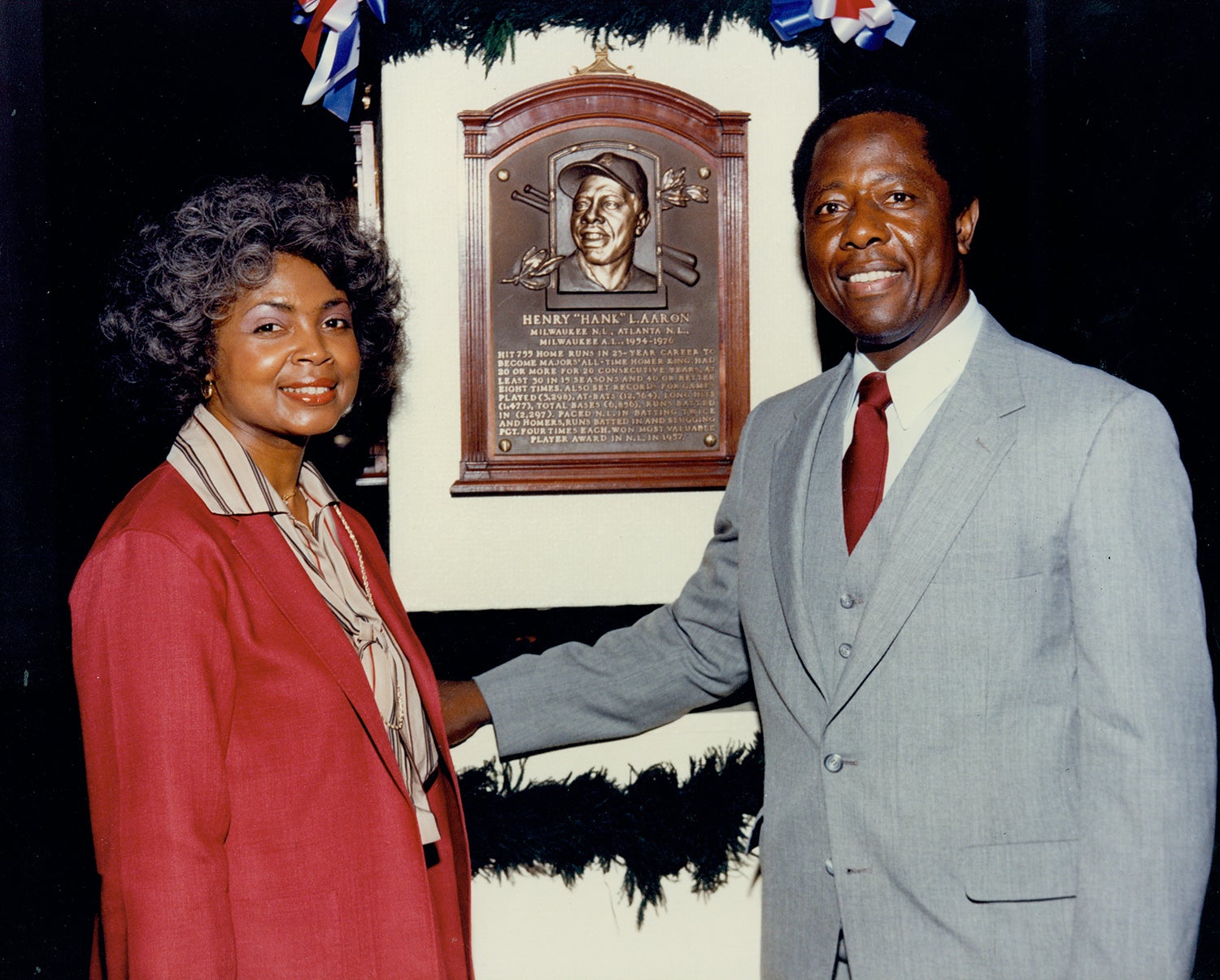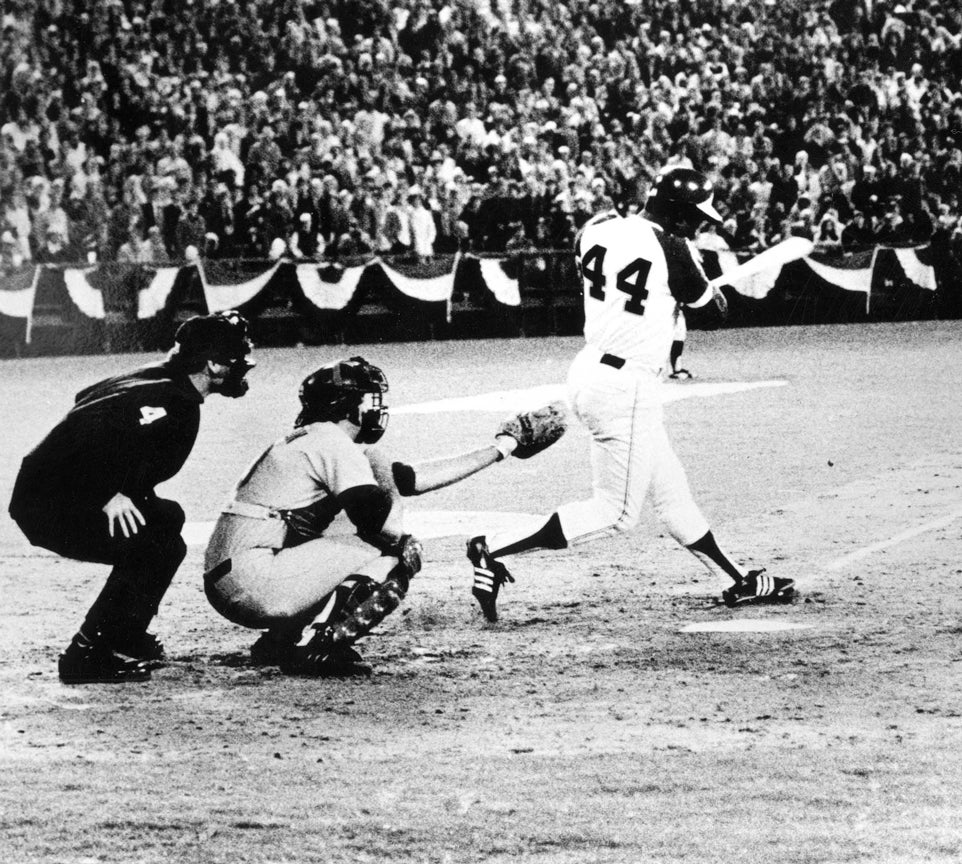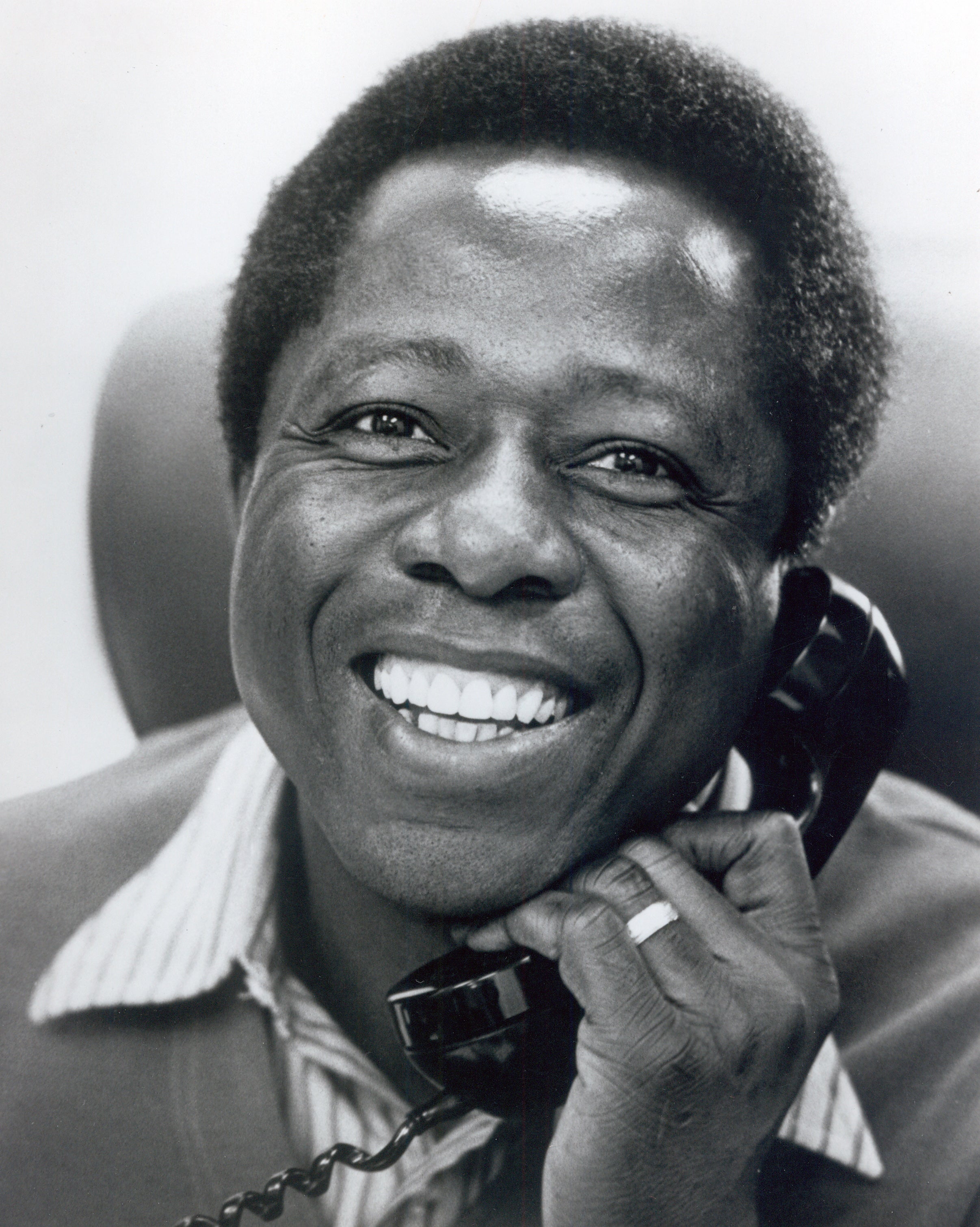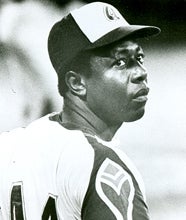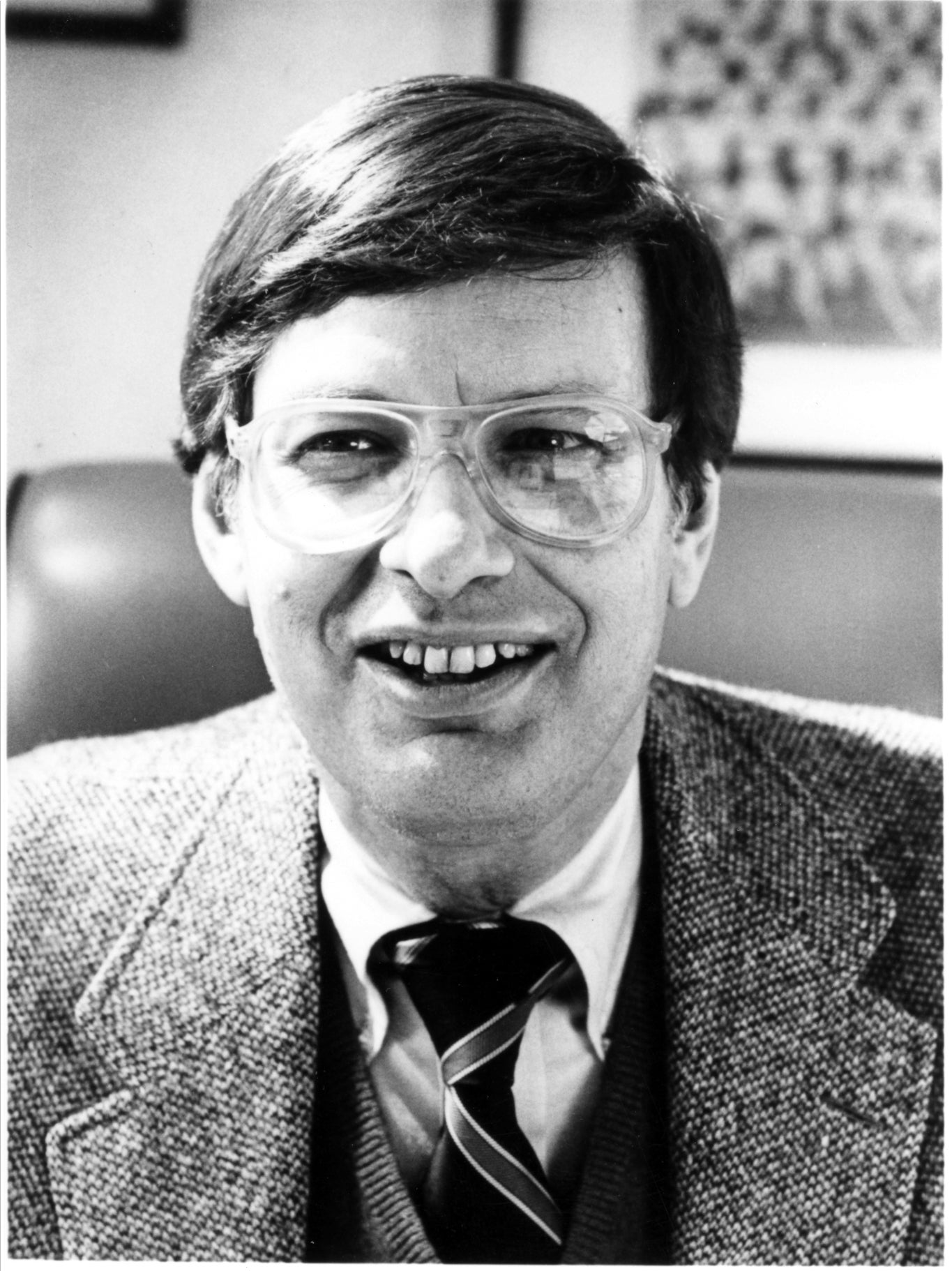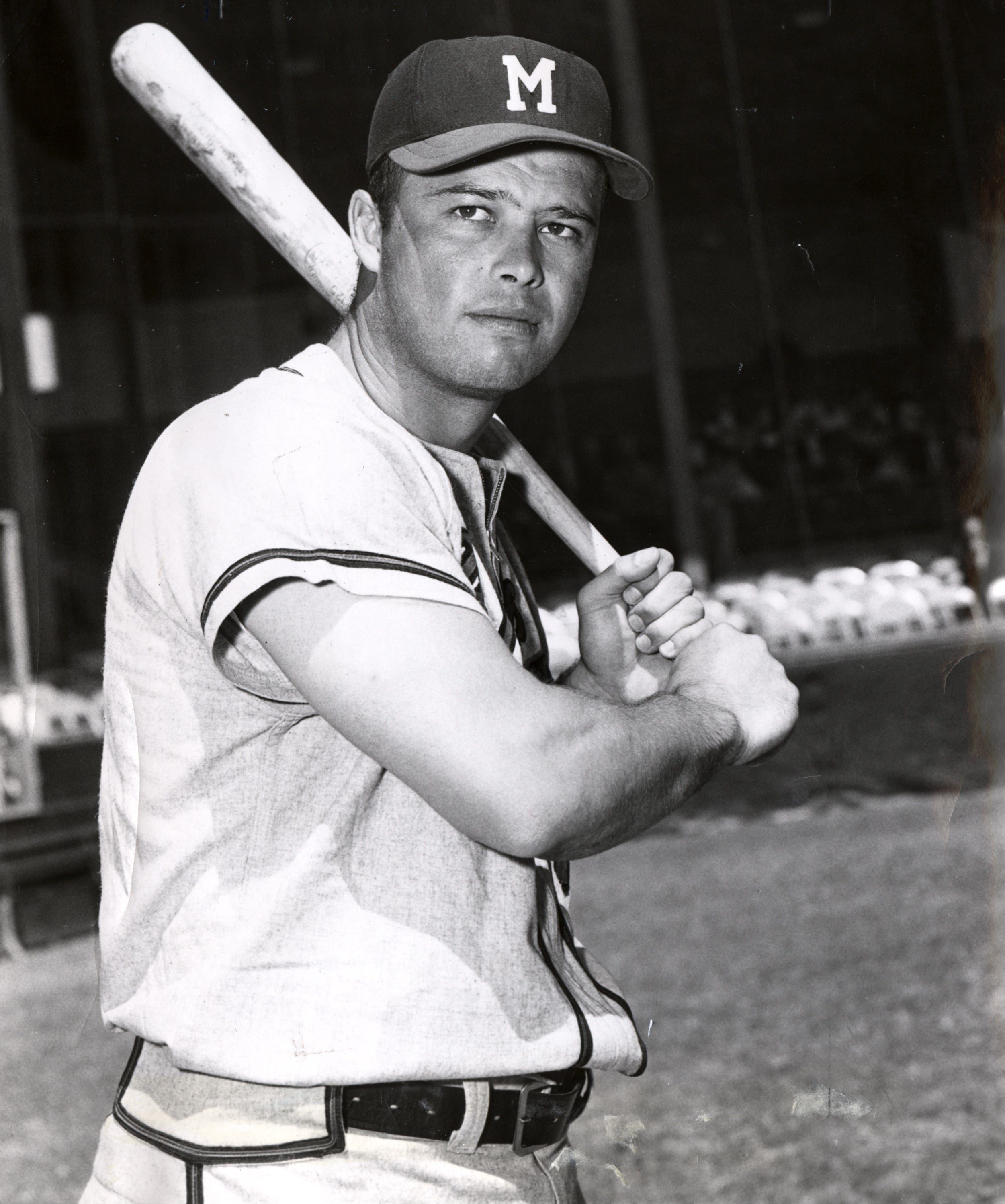- Home
- Our Stories
- The Braves trade Hank Aaron to the Brewers
The Braves trade Hank Aaron to the Brewers
When Hank Aaron first received the news that he was returning home, he couldn’t have been farther away from it.
Fourteen hours and five minutes away from Milwaukee, Aaron had been competing with Japanese home run king Sadaharu Oh in a home-run hitting contest in Tokyo. At 40-years-old, Aaron had narrowly defeated the 34-year-old slugger, 10-9, in front of a packed Korakuen Stadium and millions of television viewers worldwide.
Although he was happy he won the contest, Aaron admitted to reporters after the game that he hadn’t had any batting practice for about a month and was enduring the effects of a 17-hour-plane ride. But the ever-modest future Hall of Famer just shrugged off his win as having “patience at the plate.”
But after all of that hard work, the Hammer wouldn’t have an uninterrupted night’s sleep. In the early morning hours on Saturday, Nov. 2, 1974, he received a call from then-Brewers’ president Bud Selig, informing him that he was coming back to Milwaukee, in exchange for outfielder Dave May and a minor league player to be named later.
Aaron, though understandably groggy at the time, couldn’t have been happier with the news.
“When Bud Selig called me,” he said to the New York Times. “I was too sleepy to get all the details…All I know is that I’m happy to be going back home. This is the first time I’ve ever been traded. If I was being traded to a city like Chicago or Philadelphia, I’d frown on it. But I’m going back to Milwaukee… I’m going back home.”
Hank Aaron was born in Mobile, Ala., but his baseball home was in Wisconsin. He played the first 12 years of his career there with the Milwaukee Braves, before they relocated in 1966. After nine years of playing in Atlanta, his career was coming full-circle, as it would end in the same place it began.
But Aaron was a very different player in 1974 than he had been while playing in Milwaukee. He had certainly grown into one of the all-time greats – as he felled Babe Ruth’s home-run record that year and was in the process of setting modern records for RBI and total bases – but had also suffered from the wear and tear that comes with time. He recognized it, and had realistic expectations about the next, and final, stage of his career.
“I’m not even sure I can play next year,” he said to the New York Times, “with new pitchers, new towns, a whole new ball game for me. But it’s a tremendous challenge. It’s not like going back to West Palm Beach for Spring Training. But I’m going to do the best I can.”
Aaron would make the All-Star team again in 1975 – a remarkable feat at the age of 41 – and spent most of his last two years as a designated hitter and in left field. While his numbers dropped, those two years helped to cement his place in the baseball record-books, as he finished his career with 3,771 hits, 755 home runs, which still stands as the second most in major league history, 2,297 RBI and 6,856 total bases – two records that have yet to be broken.
He would accept a position as Vice President of the Atlanta Braves in 1976, overseeing player development and their farm system, transitioning into a role as one of the game’s great statesmen. His playing days were over, but Aaron had no qualms on how he finished his 23-year-long career.
“I guess this is the last press conferences, boys, but at least I’m going out a little better than Nixon did,” he joked with reporters in the era of Watergate. “I’m grateful for everything, though. No regrets. I didn’t get much recognition at the beginning, but when it did come, man, it came in waves. I’m totally fulfilled.”
Alex Coffey was the communications specialist at the National Baseball Hall of Fame and Museum

